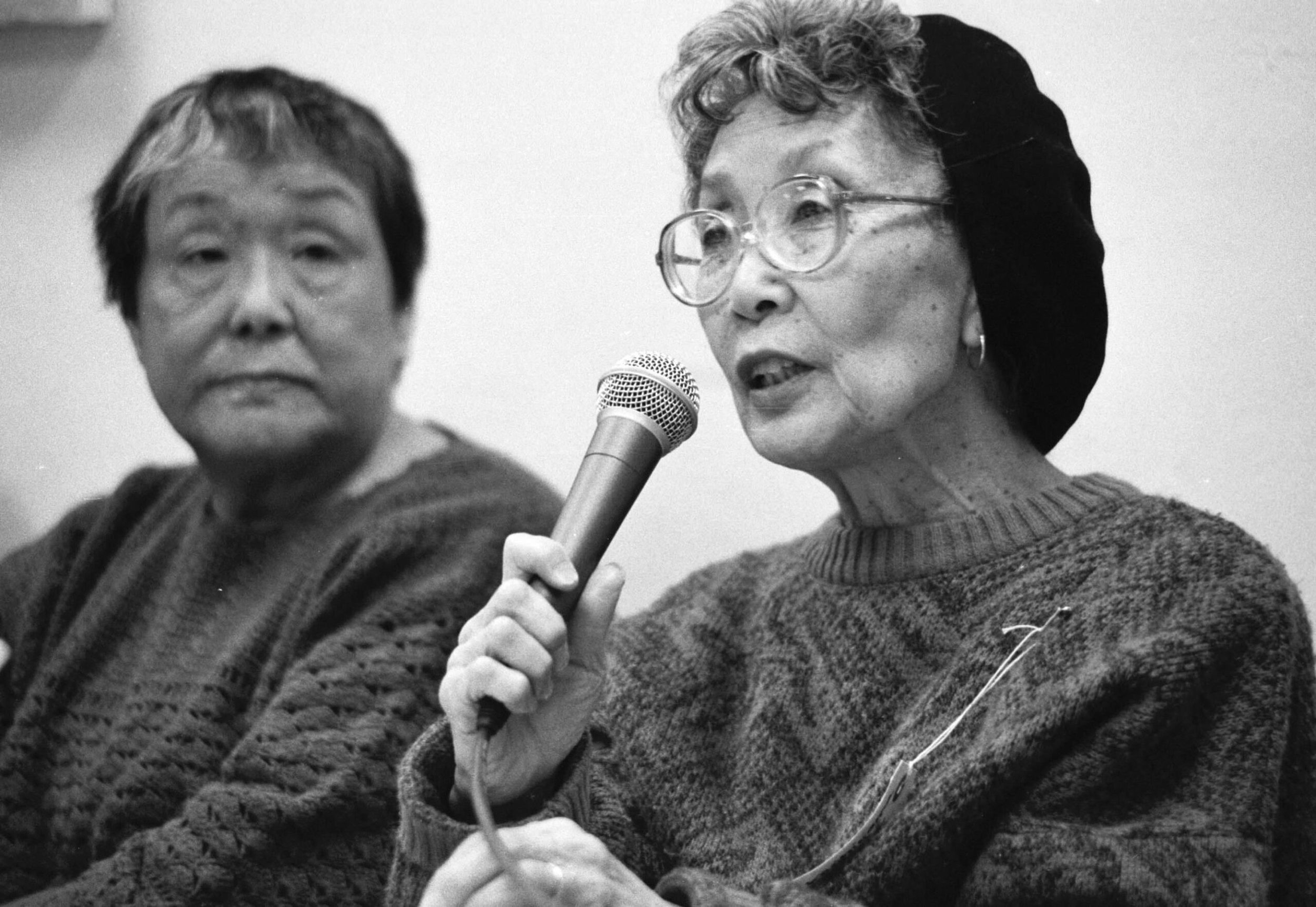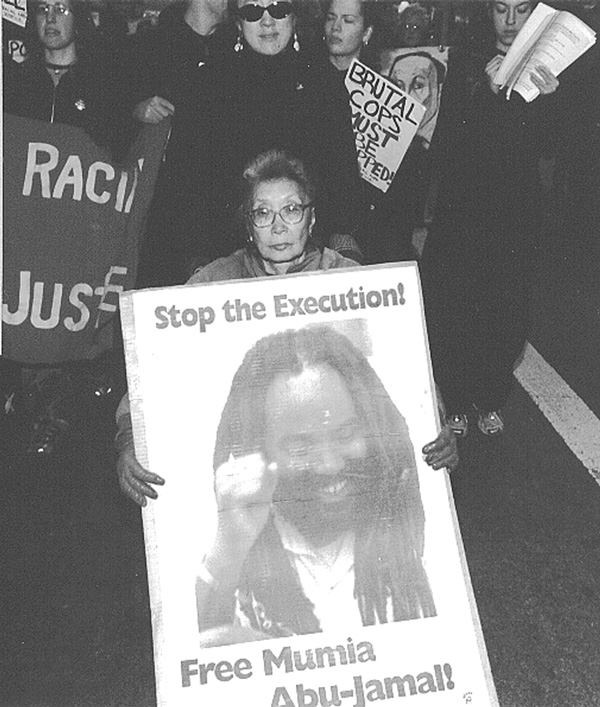
Political Prisoners

Organizing Against the Prison Industrial Complex
One of the most important and constant areas of Yuri’s activism was her work in support of political prisoners and against the prison industrial complex in the United States.
In the opening of the chapter “Supporting Political Prisoners” in her memoir, Passing It On (1998), Yuri writes:
“There are over two million men and women, mostly of color, warehoused in prisons across the country, which is more than any other nation. Many are innocent, and many should not be in prison but rather, in hospitals. There are 150,000 women in prison, and over a million and half children have parents in prison. There are also another five million people on parole. The prison industrial complex is building more prisons and more youth prisons. The majority of prisoners are Black and Latino, and American Indians make up a high percentage of the prison population. The Kanaka Maoles (indigenous Hawaiians) have the largest imprisoned population in their island country...racism, classism, and politics weigh heavily in the criminal justice system: in jury selection, poor defense, prosecutorial misconduct, police intimidation of witnesses, and withholding evidence. Once locked behind the walls, there are guard brutalities, withholding of medication, denial of basic needs, long stays in solitary confinement, taking personal property from prisoners during shake-downs, allowance of prison rapes, and the pitting of one racial group against another. Prison is not a place of rehabilitation; it is a place for punishment, isolation and humiliation."
Many activists for social justice and human rights were arrested and imprisoned in the 1960s, 1970s, and 1980s. Yuri’s work in support of political prisoners during this time fell into 3 main areas: legal defense and prisoner support committees, community outreach and public relations, and personal correspondence and visits with prisoners. Through her work with the National Committee for the Defense of Political Prisoners (1971 - 1977) and numerous defense committees (1967 - late 1990s), Yuri corresponded with and visited hundreds of political prisoners in 22 prisons across the country, as well as establishing and supporting many legal defense committees. Some of the people who Yuri supported include:
Carlos Feliciano
Martin Sostre
Assata Shakur
Dhoruba Bin Wahad
Sha Sha Brown
Sundiata Acoli
Lolita Lebron et al.
Geronimo Pratt
Queens 17
Harlem 6
Panther 21
New York 3
Tombs 7
Rap Brown 4
New Haven 3
RNA 11
Chol Soo Lee
Amiri Baraka
Mutulu Shakur
Leonard Peltier
Marilyn Buck
David Wong
Yu Kikumura
Mumia Abu Jamal
Robert Williams
Muhammad Ahmed
Rocky Boice of the Carson 10
Eddy Zheng
Mtayari Shabaka Sundiata
Queens 2
New York 8
DC 6


